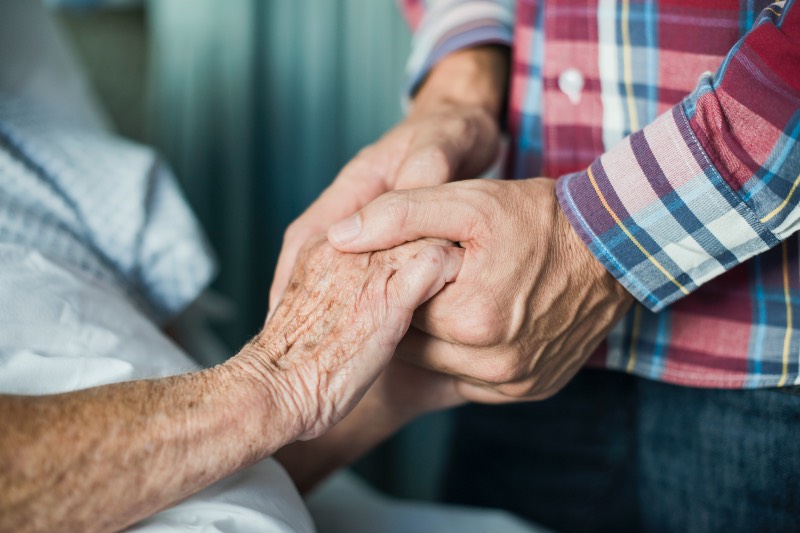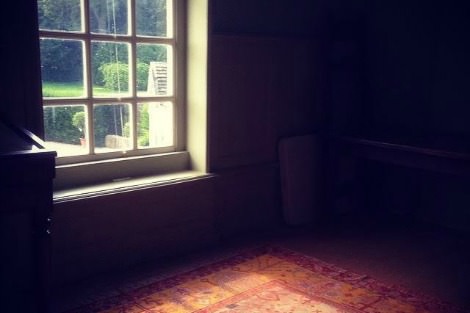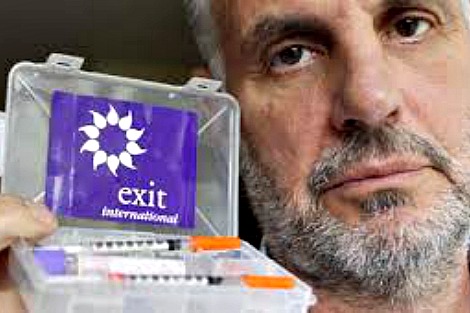Keywords: Physician Assisted Suicide
-

AUSTRALIA
- Holly Lawford-Smith
- 02 February 2024
1 Comment
How can we make progress on the question of whether debate can do harm, and if it can, whether that’s a sufficient reason to suppress particular debates? Or should we adopt a ‘no debate!’ approach to particular topics ourselves?
READ MORE 
-

AUSTRALIA
- Margaret Somerville
- 03 June 2021
9 Comments
No one on either side of the debate wants to see people suffer and the euthanasia debate is not about if we will die — we all will at some point. The debate is about how we will die and whether some ways of dying, namely euthanasia, are unethical and dangerous, especially to vulnerable and fragile people, and destructive of important shared values on which we base our societies.
READ MORE
-

AUSTRALIA
- Annmarie Hosie
- 25 May 2021
27 Comments
Peace, laughter and lightness during dying might seem unlikely, but such experiences are common, not rare. Seeing and sharing in these sudden, strengthening consolations (and receiving them in my own griefs) have taught me about our awesome potential to transcend suffering, and confirmed why we don’t need euthanasia or assisted suicide.
READ MORE 
-

AUSTRALIA
- Frank Brennan
- 20 May 2021
25 Comments
Australian jurisdictions are presently considering laws and policies relating to euthanasia, physician assisted dying and medically assisted suicide. The law can and should provide bright-line solutions or at least firm parameters within which the dying, their loved ones and their care providers can negotiate dying and death.
READ MORE 
-

RELIGION
- Frank Brennan
- 29 March 2017
1 Comment
'We need to be more focused on grace, Christ and God's word, rather than just on law, the Church and papal utterances. But today, I will draw more on law, the Church and the Pope to point us towards those more fruitful domains: grace, Christ and God's word. Our future visioning needs to focus more on the gospel imperatives including the option for the poor and the dignity of all persons, including those who are non-believers.' Address to Catholic Health Australia's Catholic Governance Symposium, 27 March 2017
READ MORE
-

INTERNATIONAL
- Frank Brennan
- 17 May 2016
30 Comments
Once the state legislates to permit assistance with the suicide of a dying, suffering, mentally competent person, the door could well be opened to those who agitate a right to kill and not just a liberty to assist with suicide, and that door could be pushed open onto a class of patients which ultimately will include those who are not dying at all That door is now wide open in Belgium and the Netherlands, while he Canadian Parliament is trying to place appropriate limits. I'm for keeping that door firmly shut.
READ MORE 
-

RELIGION
- Frank Brennan
- 03 December 2015
The consideration of medico-legal problems in the public square of a pluralistic democratic society keeping pace with profound technological change is often marked by simplistic assertions, precluding considerations of comprehensive world views, whether religious or philosophical. It is now commonplace for doctors to be told to leave their consciences at the door, as their patients are consumers and they are suppliers and of course the market decides. Debates about law and policy are often resolved with simplistic assertions about individual rights and autonomy, with little consideration for the public interest, the common good, and the doctor-patient relationship. Even conscience is said to be a matter for contracting out. This evening I ask whether there are more compelling ways to resolve medico-legal dilemmas, while conceding a limited role for law in determining the range of acceptable answers.
READ MORE
-

RELIGION
- Frank Brennan
- 27 November 2015
2 Comments
'The crisis of child sexual abuse in our societies has required that our institutional procedures be more transparent and that we learn from the ways of the world in exercising power openly and justly. This means we have to restructure some of our church arrangements so that power is exercised accountably and transparently. All of us who have positions of influence and power in institutional churches need to be attentive to the voices of those who have suffered within our institutions.' 'Discerning the place for the prophetic voice and pragmatic cooperation of the churches in the great moral questions of the age', address to the Association of Practical Theology in Oceania conference, 26 November 2015.
READ MORE
-

AUSTRALIA
- Frank Brennan
- 05 November 2014
38 Comments
Physician assisted suicide and euthanasia are back, in the courts of Canada and the UK, and in the parliaments of the UK and Australia. The Australian Senate is considering the Greens' formulation of a broad and fuzzy law that goes further than UK proposals in that it would allow Dr Philip Nitschke to administer a fatal injection.
READ MORE 
-

RELIGION
- Frank Brennan
- 24 February 2014
25 Comments
I was able to mix with other writers bemoaning Australia's refugee policy including the obfuscation about the death of an asylum seeker on Manus Island and Julie Bishop's latest diplomatic initiative asking Hun Sen to accept refugees from Australia for permanent resettlement in Cambodia. I came away wondering how passionate refugee advocates could be so sanguine about doctor administered death even for children.
READ MORE 
-

RELIGION
- Frank Brennan
- 18 March 2013
3 Comments
Change is upon the Church. Just recall the scene when the new pope emerged on the Vatican balcony. He appeared with none of the papal trimmings of office, and did not once did he refer to the papacy. Could something of this new papal style help Catholics engage more creatively with their fellow citizens? Text from Frank Brennan's lecture 'How Can the Catholic Church Contribute to a Better Culture for Life?'
READ MORE
-

RELIGION
- Frank Brennan
- 12 October 2012
2 Comments
Fr Frank Brennan SJ's paper 'Reflections on the death penalty on the tenth anniversary of the Bali Bombings' presented at the Australian Lawyers for Human Rights and Australians Against Capital Punishment Dinner, Red Hill, Brisbane, 12 October 2012, Commemorating the 10th World Day Against the Death Penalty.
READ MORE